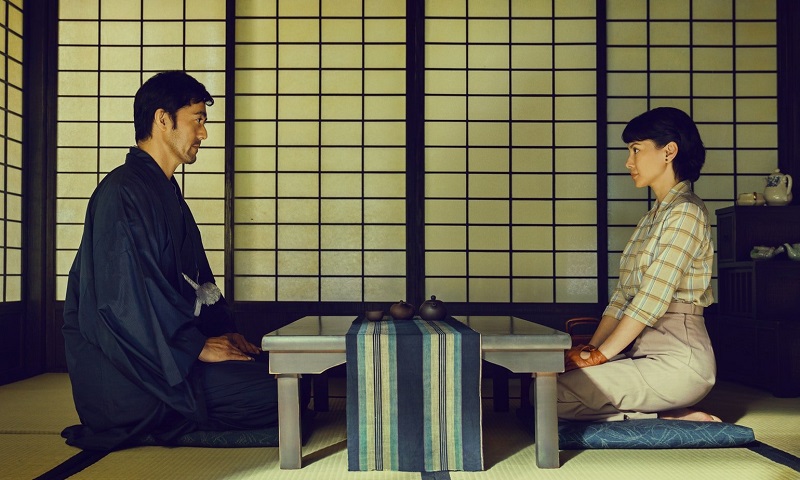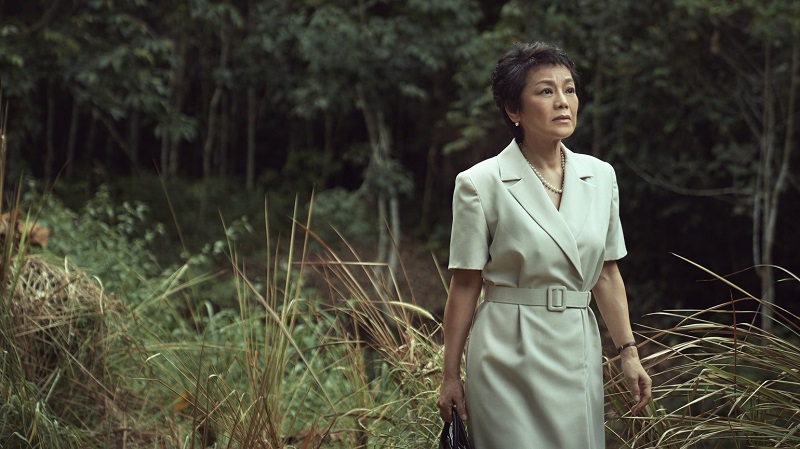
Novelist Tan Twan Eng (Photography by SooPhye/Options)
Like the gardener who painstakingly prunes and shapes his plants, Tan Twan Eng parses his prose until he is happy with how it flows. It is a long process that involves constant thought, rereading and rewriting, reading passages aloud, the input of literary friends and having an ear for words and nuances.
“My main point as a writer is I always try to be very clear. It’s probably because I was a lawyer as well — we try to make our documents very clear. I don’t like reading books where the author thinks he’s being clever by making things difficult for the reader,” he says.
The author of The Garden of Evening Mists (Myrmidon Books) certainly has the reader’s ear. His novel was among the six on the 2012 Man Booker shortlist. It won the 2012 Man Asian Literary Prize and the Walter Scott Prize 2013 for historical fiction and was shortlisted for the 2014 International Impac Dublin Literary Award.
Clarity begins at home for Tan, 46 this year. “I start with writing for myself. I have to know what I am trying to say, and say it so that it is clear to me. I reread many times. Once I’m happy with the final thing, I start asking, ‘Is this confusing to the reader? Is it convoluted or unnecessarily complex?’ I keep thinking and working.”
His first drafts go to a couple of close friends who enjoy reading and are brutally frank. They are able to tell him what does not work and why: a character is acting out of character; a passage is inconsistent with what he is trying to portray; a scene is stagnant and does not move the plot at all; or the book sags in the middle section.
A first draft is always over the top, he says. Then you rein in the purple prose and cut it down. “The funny thing about writing is the less you write, the more you convey. That’s the thing I found out which I could not believe at first. It works better on the reader’s imagination as well and is so much more enjoyable for them. When you pick up a literary novel, you want to work. In a sense it’s more interactive — the reader has to supply the materials to form a picture.”
Tan flew home to Malaysia from Cape Town, South Africa, in late June for a press conference called by Astro Shaw and its partners, HBO Asia and Finas to announce that filming of The Garden of Evening Mists has started. The movie adaptation is being shot in various locations in the country, including Cameron Highlands’ tea estates.
Time shifts in the story take newly retired Superior Court judge Teoh Yun Ling from the 1980s to the 1950s and back. Diagnosed with aphasia, which impairs the ability to process language, she heads for Cameron Highlands, where she had first gone after escaping death in an internment camp to ask Nakamura Aritomo to build a Japanese garden in memory of her sister. Yun Hong, also a “guest of the Emperor”, had perished without a trace.
The exiled Aritomo, who used to work in the imperial gardens, says no, but offers to teach Yun Ling how to build the garden herself. Master and apprentice are drawn together by dark secrets and inner turmoil as communist guerillas create havoc in post-war Malaya. The melancholic stillness of the garden they immerse themselves in sustains the novel. It strings scenes built around archery, woodblock prints, tattoos and tea and finds its way into what is buried in the protagonists’ scarred hearts, drawing it out with startling clarity.
“I’m like that by nature,” says Tan, referring to the pervasive mood of his book. “All my favourite books don’t have happy endings.”
It takes skilled acting to convey melancholy and silence on the screen and he is glad that Sylvia Chang and Lee Sinje, known for their expressive portrayals of strong women, are playing the old and young Yun Ling respectively. “I don’t like describing faces at all. I tend to skip that when I am reading a book, especially the clichéd descriptions. Also, I want readers to have their own impressions of what sort of face a character has. They can fill in the blanks.”
geom.jpg

The seed of a story starts with a character, in this case, Yun Ling, and it grows from there. What does she want? Why is she on his mind? Slowly Tan begins to think of another character for her to react against. “The characters and their conflicts determine the setting. For this book, I knew I wanted an isolated spot during the Emergency. ”
He is thrilled that The Garden of Evening Mists is being made into a feature — “any writer who is honest with himself secretly hopes for that” — because film can make a book more linear and help readers understand it better. It is also a form of advertisement that lasts.
Selling the rights to a book also means losing the right to control what happens after, but he has faith in director Tom Shu-Yu Lin and the cast, and waits to be pleasantly surprised.
“It’s a strange feeling and I have no idea what to expect. The production people have been very open, friendly and helpful. They do realise this is the first time something like this has happened — a Malaysian book getting the sort of movie adaptation they want to sell around the world. They want to make it as Malaysian a production as possible.”
Tan’s fiction debut, The Gift of Rain (Myrmidon Books), made the 2007 Man Booker longlist. It was written during a gap year in Cape Town, where he studied shipping law. Doing a master’s was his “legit reason” for taking a break from intellectual property law — which he has since quit — and his way of “appeasing” his parents, who were concerned about where his career was going.
It took him three years to find a publisher for the book, which is about aged Philip Hutton, the son of an English father and a Chinese mother, who recalls being torn between loyalty to aikido master Hayato Endo, the Japanese diplomat who influenced his formative years in pre-war Penang, and love for family and country, as he sits and talks to Endo’s former lover who is visiting from Japan.
Penang-born Tan lives in Selangor but spends the southern winter — his favourite time of the year and when he is most creative — in Cape Town because it is quiet, cold and deserted and he can really become a hermit.
He found it equally tough getting down to work on a second book. “They always say the second book is the hardest. True lah, because you go for broke in the first, throw everything you have in there. Then, you find you have nothing left to write anymore.
“My first book was very descriptive, flowery and rich. My main intention is that each book will be leaner. The fact that I’m getting older with each book [means] it’s getting more and more tiring to write descriptive language. Look at JM Coetzee: His books have almost no description at all — he has stripped away everything.
“You can still write pretty prose and be evocative, but you have to be clear. Otherwise, what’s the point? I’m always guided by [Somerset]Maugham’s principle: He said the three things he aims for in his writing are clarity, clarity, clarity.”
Tan aims to keep evolving his style but still loves the richness of language, and reading and playing with it. “The writing has to be timely and timeless. If it’s just timely, people will stop reading you after a few years because you lock yourself in a particular period. A lot of South African writers wrote about apartheid. It was necessary but the negative point is it freezes their work in a particular time and setting.”
yun_ling.jpg

A writer can only write what he knows of in the present, but he can ensure his work remains fresh to later generations by weaving his message into the characters and their thoughts, he believes. Take The Garden of Evening Mists. “The easy way out is to be didactic and say it is about communism. But it’s not ... it is about the weaknesses and strengths of people in difficult times. And difficult times will always be with us.
“I want to show that everyone is not one-sided. They are humans; they did very bad things. But there are people who did very good things too. There are also supposedly good countries that did bad things. Another thing that dates a piece of work is if you are very unbalanced on one side. You have to be fair.”
Knowing what dates a book does not make writing any easier. In fact, it gets more and more difficult to do it well, says Tan, who has completed the third draft of his third book but will not reveal more than that it is another historical novel set in Penang in 1910/11 and his friends are reading it now.
“I just feel it is weird talking about something that’s not out there yet. I had wanted it out this year; hopefully, we can make it. It still needs serious rewrites. When I reread certain paras, geli lah.
“Again, it’s parsing all the descriptions. If you don’t have description, the momentum has to be propelled by the dialogue, otherwise there is nothing to write. Dialogue has always been my weakness. You cannot just replicate what you hear because people talking in real life digress a lot. Characters have different ways of speaking. You need context, you need to be able to propel the story along and describe the little pauses here and there.”
He hopes not to be pigeon-holed as a writer of historical fiction, although a fourth book also falls under that genre. It was actually his third and needed lots of research. But a knee problem — the result of his jogging, aikido and being knock-kneed — followed by an operation that did not heal well threw off his schedule and he decided to do a smaller book first.
Writing comes naturally for Tan, an avid reader from young, but it is a craft he had to hone. “I need to restrict my natural tendency for excessive florid writing, to really curb myself and to understand what constitutes what is considered good or bad writing. It’s very difficult to be objective but you have to get as close to perfection as you can.”
A six-month writer-in-residence programme in 2016/17 at Singapore’s Nanyang Technological University, which required him to teach a course under its creative writing programme, was wonderful and eye-opening. He realises teaching is not for him — “I am impatient and can be sharp with my tongue” — and wonders if writing can really be taught.
“Maybe I should rephrase it this way: Creative writing can be taught but can it be learnt? I suppose a lot of first-time writers think it’s easy and don’t pay attention to craft. They are more interested in being known as a published writer than leaving a body of work that will still be read after they are dead. We have to guard against that.”
Criticism raises his heckles but he has learnt to listen to why someone thinks a sentence is not good enough and try out suggestions. “It is important to take a step back. Writing is a profession so you have to take a professional approach to it. There is this misconception that writing is artistic and it is art. You are in an industry — publishing — and you have to work within it and market your book.” One thing writing schools could teach, he adds, is how to get an agent and what they look for in your letter to them.
He is not fond of doing public readings — “it’s a modern phenomenon that writers have to be performing their works” — and does not see himself writing an autobiography. “I’m not famous or very visible … I rarely mix [with the literary crowd]. One of the joys that attracted me to writing is that I don’t have to mix with my work colleagues. You can sit alone in a room; you don’t have to talk or bother about what others are doing.”
Having a place to escape to to write helps and his mother, whom he lives with here, leaves him alone. He tries to have a routine, writing from 9.30am — “latest 10am because I’d be feeling antsy” — to 4.30pm, mindful of distractions such as something in the house that needs fixing.
Tan is grateful that the accolades for The Garden of Evening Mists, which has been translated into 21 languages, the latest Vietnamese, came early in 2013, the year his father died. “When I heard of the prizes, I felt relief, especially for my parents’ sake. Towards the end, my father had macular problems and couldn’t read. Thank god we had audio books so he listened [to them] at night when he went to sleep”, assured that his son was doing something useful.
Bring Up the Bodies (Fourth Estate) by Hilary Mantel was the eventual Man Booker winner for 2012, a result Tan was happy about as a fan of her writing and having met her in person when she — also a contender for the Walter Scott Prize — congratulated him after his name was announced.
“If it wasn’t me, I’m glad she won,” he says. Still, in all honesty, he hopes the final part of her Wolf Hall trilogy will not be released in the same year as his next book.
This article first appeared on Jul 9, 2018 in The Edge Malaysia.


